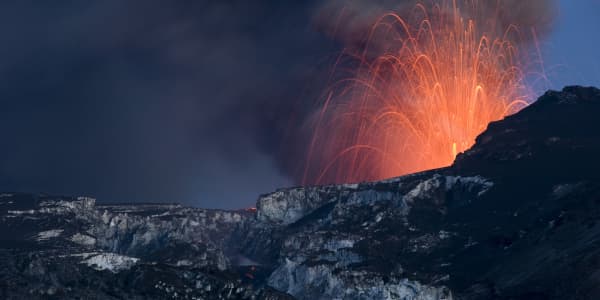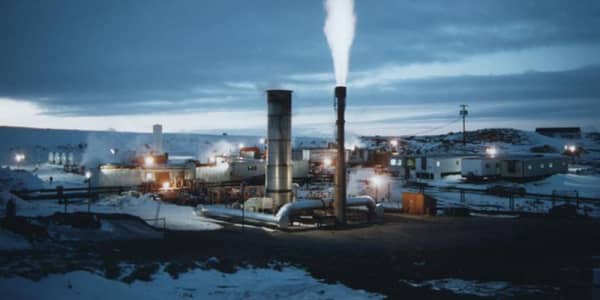Back from the brink
Everyone loves a good comeback story. In the world of business, though, they're rather rare. Generally, when things start to go really wrong for a large company, it's hard for it to pivot in time to turn unprofitable operations around and regain market share.
Since 1989, though, there have been some marvels in the comeback world. What these success stories have in common is the remarkable leadership skills of their CEOs. Against the odds, these mavericks made bold but necessary moves to sharpen business focus and build the corporate brand. Here are 10 that will go down in history.
—By Chris Morris, Special to CNBC.com
Posted 29 April 2014
ABB (NYSE: ABB)
After building a global empire in the engineering, automation and power fields, this Zurich-based conglomerate almost lost it all in the early 2000s as debt, liability from its asbestos operation and some poor acquisition choices pushed ABB toward bankruptcy. Shares fell to $1.40 by October 2002.
Officials turned things around quickly by streamlining operations and narrowing ABB's focus and convincing Göran Lindahl, former CEO, and Percy Barnevik, former chairman, to return some of their significant retirement packages. With approximately 150,000 employees worldwide, the $59 billion company's stock now trades in the $25 range.
Apple (Nasdaq: AAPL)
You can't do any comeback list without mentioning Apple. In 1997, when Steve Jobs returned to the company he had founded, it was seemingly on its last legs, having suffered 12 years of losses. But a $150 million investment by Microsoft and the creative energies Jobs inspired in the staff started to turn things around.
Within two years the stock was back at $99. In 2001 the iPod made its debut, and the rest was history. In its most recent earnings announcement, Apple posted earnings of $14.50 a share on sales of $57.59 billion. It has a current market cap of more than $473 billion.
Best Buy (NYSE: BBY)
Just 10 years ago this consumer electronics retailer was named Company of the Year by Forbes. Today the company that employs 140,000 worldwide is struggling to turn itself around as it fights an uphill battle against cheaper online retailers. After its stock price plummeted to $11 a share, Best Buy brought in CEO Hubert Joly to take the reins in late 2012. Since then, he has been slashing costs, boosting online sales and putting a focus on customer service. So far the strategy has been working.
Last year the company reduced annual costs by $765 million, far ahead of the $725 million it had targeted. (That target has now been raised to $1 billion.) Revenues dropped slightly to $42 million last year, but the company saw improvements in both in-store and online sales.
Continental Airlines (NYSE: UAL)
A combination of high fuel prices and poor customer service was taking its toll on Continental in the early 1990s. By 1990, in fact, the company founded in 1934 was on its second bankruptcy. The arrival of Gordon Bethune as president in 1994 marked the beginning of a turnaround, though. Under the former Boeing executive (who eventually became CEO), Continental cut costs, updated the fleet and won multiple customer-service awards from J.D. Power, all of which brought customers back in droves.
The airline merged with UAL Corp. in 2008 to better compete in the fast-consolidating market, but the turnaround still remains one of the industry's biggest success stories. Today the combined airline has more than 5,300 daily departures to 62 countries and boasts earnings of nearly $1.25 billion on $38.3 billion in annual revenues.
GM (NYSE: GM)
The 2008-2009 Great Recession and the company's inability to get government loans led the automaking giant to file for bankruptcy in 2009. In a controversial move, the U.S. government ended up buying a 26 percent ownership stake in the company, ultimately costing taxpayers $10.5 billion. Even critics note, however, that the move saved 2.6 million jobs and prevented a much wider, ripple effect of business failures.
By the end of last year, Washington had sold off all of its stock in the company.) GM, meanwhile, has now been hit by a federal investigation into its decade-long delay of initiating recalls tied to defective ignition switches in its cars. It's another challenge affecting the $54 billion company's long-term outlook and stock price.
IBM (NYSE: IBM)
IBM might have helped launch the personal computer revolution in the early 1980s, but by the early 1990s, Big Blue was losing market share and at risk of being irrelevant. In 199 it announced losses of more than $8 billion for the previous year due to a bloated workforce, declines in technologies the company had heavily invested in and the weakening of its mainframe business.
But that year also saw the arrival of Lou Gerstner as CEO. The leader turned things around. He focused the company on mainframe corporate clients, slashed jobs and killed off plans to spin off IBM business units into separate companies. The company also invested in software and streamlined its marketing to speak as a single entity, giving it a unified voice to consumers. Today the company has a market cap of more than $206 billion.
Martha Stewart (NYSE: MSO)
When the country's most famous doyenne went to jail for insider trading in 1999, many pundits began prophesizing doom for Martha Stewart Living Omnimedia, saying the diversified media and merchandising company couldn't survive without her. Stewart eventually enjoyed some of that same schadenfreude when the company returned to profitability a year after her release from prison.
Today, Stewart is once again chairman of the $223 million company and is seeing her own personal brand increase as a regular guest on morning and late-night talk shows.
Nintendo (OTC: NTDOY)
There's a saying among videogame makers: Never count Nintendo out. After all, the Japanese company launched a revolution 25 years ago with the launch of Game Boy. But in 200 a lot of people did. Sony's PlayStation 2 console was handily beating Nintendo's GameCube after the original PlayStation had made big inroads against the company. And Microsoft's Xbox was beginning to steal audience as well. Independent publishers had largely started bypassing the system with new releases. Then, in 2006 the Wii hit stores, and Nintendo was quickly back on top, revolutionizing the industry with a new way to play games that competitors tried to emulate.
Today, with the Wii U, Nintendo's back at the bottom of the heap, being outsold by the PlayStation 4, but this time around, industry insiders are less quick to start writing the company's obituary. After all, it is still the world's largest video company by revenue.
Donald Trump
Trump not only runs The Trump Organization, a privately-held conglomerate that owns and operates hotels, resorts, golf courses and residential real estate, but is himself a brand of sorts. The entrepreneur has had an impressive series of rebounds, coming back from our corporate bankruptcies in 1991, 1992, 2004 and 2009. He saw some personal risk in '91 after guaranteeing debt associated with the construction of Trump Taj Mahal with his own money, but he never made the mistake again.
At the same time, he has managed to build his personal brand, hosting "The Apprentice" on NBC and by publicly feuding with everyone from Rosie O'Donnell to President Barack Obama. Forbes has estimated his net worth at $3.9 billion.
Wendy's (Nasdaq: WEN)
Dave Thomas thought he was through in 1982. The retirement of the Wendy's founder proved to be a temporary thing, though, as revenues dipped and standards slipped at the chain's restaurants. James Near, who was one of the company's largest franchisees, eventually took over the chief executive role and started the turnaround, but his master stroke was coaxing Thomas back to a part-time role as the company spokesman to win customers with his down-home charm.
Those ads were phenomenally successful and brought in a new rush of customers. Today the company has approximately 6,500 stores in 26 countries and is the world's second-largest hamburger fast-food chain, with annual sales of nearly $2.5 billion in 2013.




